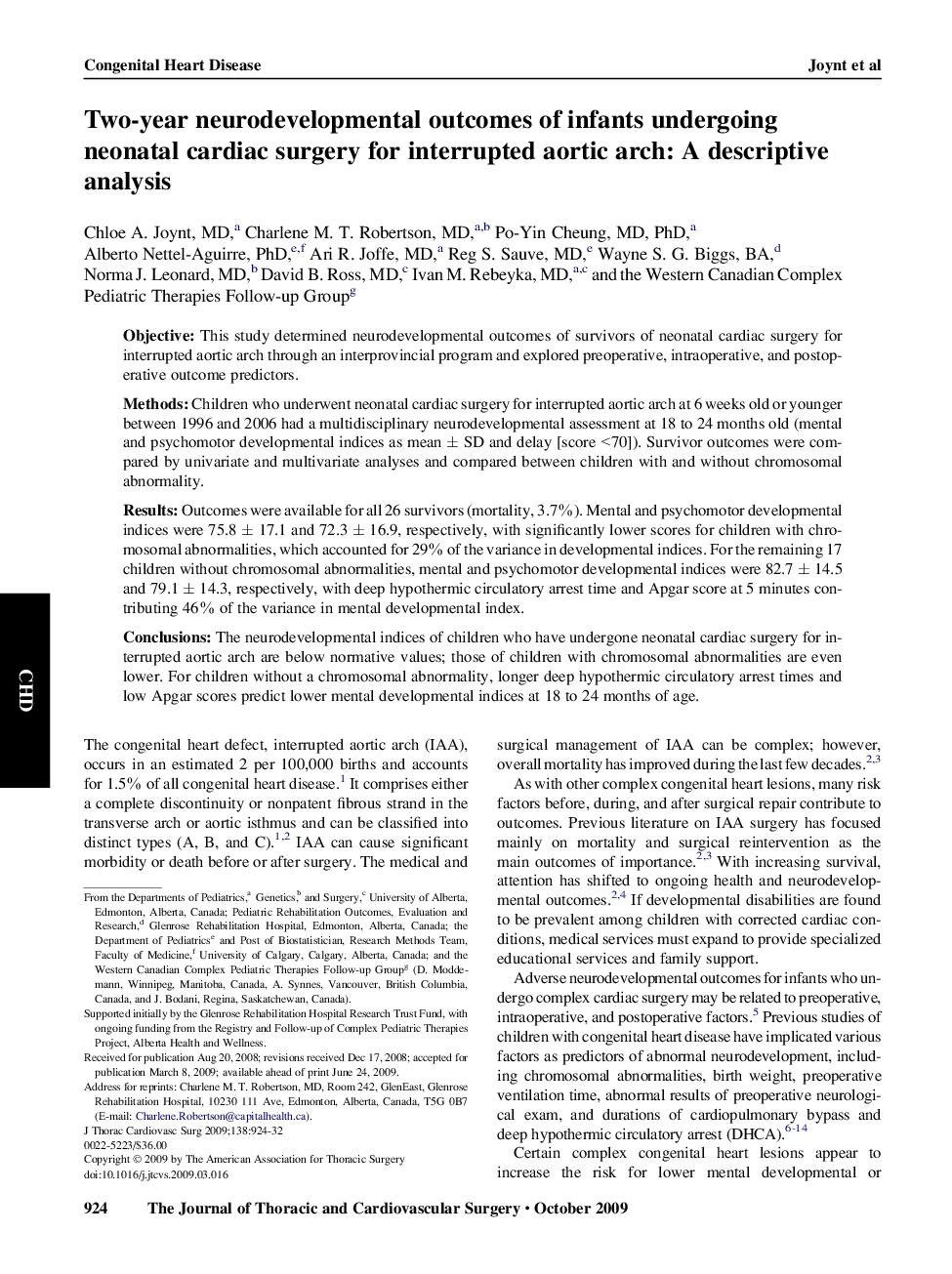| Article ID | Journal | Published Year | Pages | File Type |
|---|---|---|---|---|
| 2982093 | The Journal of Thoracic and Cardiovascular Surgery | 2009 | 9 Pages |
ObjectiveThis study determined neurodevelopmental outcomes of survivors of neonatal cardiac surgery for interrupted aortic arch through an interprovincial program and explored preoperative, intraoperative, and postoperative outcome predictors.MethodsChildren who underwent neonatal cardiac surgery for interrupted aortic arch at 6 weeks old or younger between 1996 and 2006 had a multidisciplinary neurodevelopmental assessment at 18 to 24 months old (mental and psychomotor developmental indices as mean ± SD and delay [score <70]). Survivor outcomes were compared by univariate and multivariate analyses and compared between children with and without chromosomal abnormality.ResultsOutcomes were available for all 26 survivors (mortality, 3.7%). Mental and psychomotor developmental indices were 75.8 ± 17.1 and 72.3 ± 16.9, respectively, with significantly lower scores for children with chromosomal abnormalities, which accounted for 29% of the variance in developmental indices. For the remaining 17 children without chromosomal abnormalities, mental and psychomotor developmental indices were 82.7 ± 14.5 and 79.1 ± 14.3, respectively, with deep hypothermic circulatory arrest time and Apgar score at 5 minutes contributing 46% of the variance in mental developmental index.ConclusionsThe neurodevelopmental indices of children who have undergone neonatal cardiac surgery for interrupted aortic arch are below normative values; those of children with chromosomal abnormalities are even lower. For children without a chromosomal abnormality, longer deep hypothermic circulatory arrest times and low Apgar scores predict lower mental developmental indices at 18 to 24 months of age.
